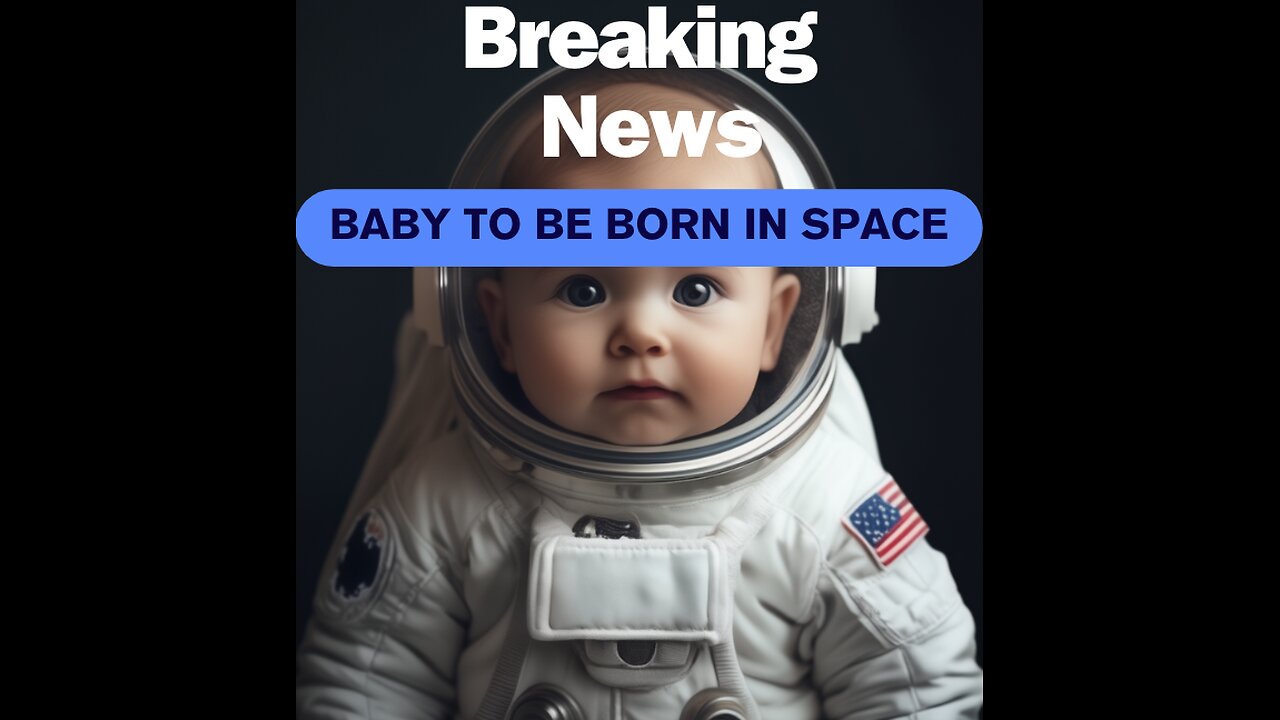Premium Only Content

Extraterrestrial Pregnancy: The Ultimate Adventure or Ultimate Risk?
In a groundbreaking venture that challenges conventional wisdom, SpaceLife Origin, a biotech company, is spearheading a bold mission: to enable the birth of the first (technically) extraterrestrial child. Departing from traditional maternal norms, they propose sending a pregnant woman into the exosphere to give birth, heralding a new era in human reproduction.
Founded on the premise of humanity's imminent colonization of other planets and Earth's escalating environmental perils, SpaceLife Origin envisions a future where space births become commonplace. Their visionary agenda comprises a series of meticulously planned missions, culminating in the historic birth of a child beyond Earth's confines by 2024.
The ambitious endeavor commences with Mission Ark, slated for 2020, offering individuals the chance to safeguard their genetic legacy by storing their "Seeds-of-Life" in a satellite orbiting Earth. This pioneering initiative assures a secure repository for future generations, shielded from terrestrial catastrophes.
Following suit, Mission Lotus, scheduled for 2021, embarks on a revolutionary attempt to conceive a human in space. Utilizing human egg and sperm cells launched to a space station, scientists aim to artificially create an embryo, laying the groundwork for extraterrestrial gestation.
Ultimately, Mission Cradle aims to realize the historic birth of a human being in space, marking the advent of humanity's first "extraterrestrial" baby. However, logistical challenges abound, raising questions about the safety and feasibility of such a feat.
Dr. Egbert Edelbroek, SpaceLife Origin's Chief Strategy & Innovation Officer, encapsulates the profound significance of this endeavor, stating, "It's a small step for a baby, but a giant baby-step for mankind." Yet, amid aspirations of interplanetary colonization, uncertainties linger regarding funding, partnerships, and ethical implications.
As SpaceLife Origin navigates uncharted territory, garnering support from entities like the tentative space nation Asgardia, profound questions emerge about the societal implications and inclusivity of such ventures. Despite the allure of space exploration, the quest for cosmic advancement prompts reflection on its broader societal impact and ethical considerations.
-
 1:48
1:48
Conspiracy Chronicle
11 months agoFaith Under Fire? Biden Administration Accused of Targeting Religious Schools
1301 -
 58:20
58:20
Redacted News
2 hours ago"Agenda 2030: You Will Own NOTHING — Here’s What That Really Means"
28.4K42 -
 24:59
24:59
Stephen Gardner
3 hours agoBREAKING LEAK: Trump Prepping Huge White House Shake-Up!
20.9K37 -
 23:43
23:43
Jasmin Laine
2 hours agoLiberal Minister Demands ‘MAGA Apology’—MELTS DOWN Over ‘Trade War’
4K3 -
 LIVE
LIVE
LFA TV
19 hours agoLIVE & BREAKING NEWS! | TUESDAY 11/25/25
861 watching -
 LIVE
LIVE
freecastle
7 hours agoTAKE UP YOUR CROSS- Be devoted to one another in LOVE. Honor one another ABOVE yourselves!
138 watching -
 18:24
18:24
Neil McCoy-Ward
2 hours agoA Warning For European Citizens (THIS IS BAD!)
14.8K8 -
 1:29:42
1:29:42
The Quartering
4 hours agoTrumps Turkey Pardon Roast, Woke Pastor Destroyed, AI To Replace 40% Of Workers & More
110K13 -
 1:08:32
1:08:32
DeVory Darkins
5 hours agoBREAKING: Minnesota Judge Makes FATAL MISTAKE Overturning Jury’s $7.2M Somali Fraud Verdict
128K99 -
 7:40
7:40
Colion Noir
3 hours agoArmed 7-Eleven Clerk Shoots Attacker & Gets Fired
23.3K46